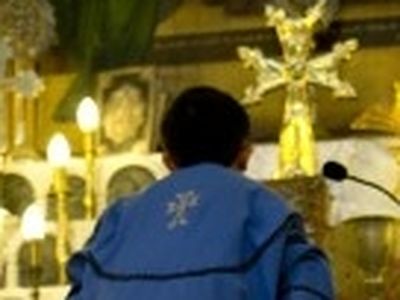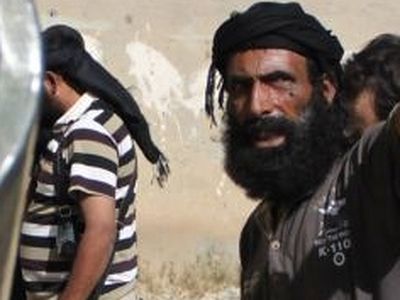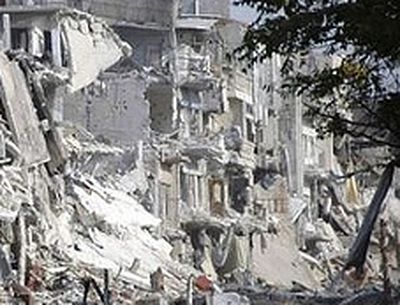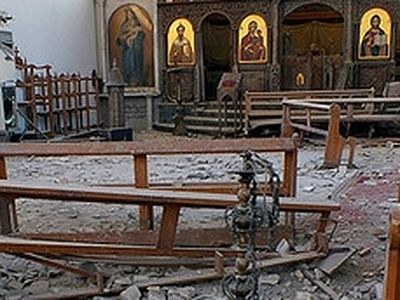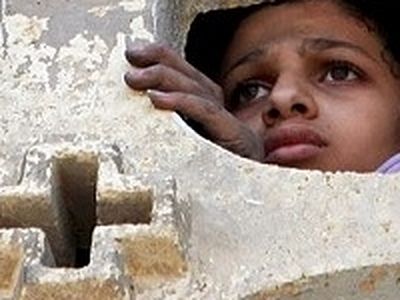November 15, 2013
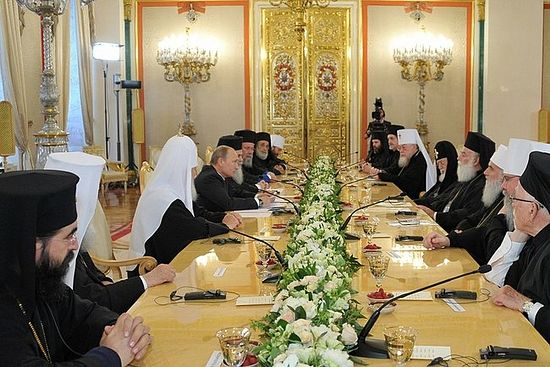 Meeting with representatives of the local Orthodox Churches. Photo: Press Service of the President of Russia
Meeting with representatives of the local Orthodox Churches. Photo: Press Service of the President of Russia
On July 25, a delegation of leaders from 15 Eastern Orthodox churches (including the U.S.) met in Moscow with Russian President Vladimir Putin to discuss the increased persecution of Christians in the Middle East.
Occasional persecution was always a hazard for Christians living as minorities in Muslim countries. Still, there were places in the Middle East where a reasonably tranquil life was possible. This was particularly true of Egypt and Syria, where Christians made up more than 10 percent of the population and often prospered as a group — urban, well-educated, and professional.
With the civil war in Syria and the civil conflict in Egypt, the instances of violent repression increased. This rise in the rate of violence signaled a change that was particularly worrying for Orthodox bishops, who lead the largest body of Christians in the Middle East.
Ironically, the Orthodox delegates from around the world did not go to Moscow to discuss the Middle East. In fact, they had been invited to Moscow by Patriarch Kirill, the head of the Russian Orthodox Church, to take part in a celebration commemorating the conversion of the Russian people to Christianity more than a thousand years ago. Nevertheless, the delegates found they were compelled to talk with their Russian hosts about such events as the burning of more than 40 churches in Egypt, the random murder and drive-by killing of Christian laity in Cairo, and the kidnapping of senior clergy in Syria.
Unfortunately, the list of innocent sufferers in a civil war is very long and the losses endured by them runs very deep. Nevertheless, argued the Orthodox leaders, civil disorder in the Middle East cannot be allowed to continue. Innocent suffering must be brought to a quick end. The bishops were convinced, however, that there was no solution to the violence against either Muslims or Christians that does not begin with an immediate cease-fire and the start of intense negotiations by all the warring parties.
It is hard to imagine Orthodox bishops talking to Joseph Stalin or even Nikita Khrushchev about the plight of innocent Muslims and Christians caught in a bloody conflict they did not start and could not end. But Putin, in spite of his KGB background, has embraced the Russian Orthodox Church. What exactly is involved in that decision is a matter of debate. It is at least clear that Putin thinks that Orthodoxy adds a dimension of depth to the Russian character missing from what he regards as the superficial character of the American people. On the whole, Putin has a low view of American society (with the exception of Harley-Davidson motorcycles, which he adores).
Putin is therefore comfortable, as the old Communist hierarchy would never have been, sitting in the Kremlin palace, chatting with the patriarch of Moscow about the pastoral concerns of Orthodoxy in the Middle East. Such a friendly meeting between Putin and the leaders of Orthodoxy should not go unnoticed, certainly not in the Middle East, where Russia has interests to protect. The Orthodox bishops for their part were aware that Putin had no easy remedy for ending the violent upheavals in Egypt and Syria, but nevertheless urged him to encourage peaceful negotiations whenever he could.
Apparently Putin agreed with his visitors that some negotiation in the Middle East was still possible. In August he sold a reluctant President Obama on a Russian negotiated plan to dispose of Syria’s chemical weapons. It was not a comprehensive solution to the civil war, but it was an important step in the right direction.
The Orthodox bishops must have felt that the jointly negotiated settlement on chemical weapons was a first answer to their desperate prayer on July 25 “that peace and the love of brothers may be restored in the Middle East.” You don’t have to believe in the efficacy of prayer to breathe a quiet “Amen” to their petition.
